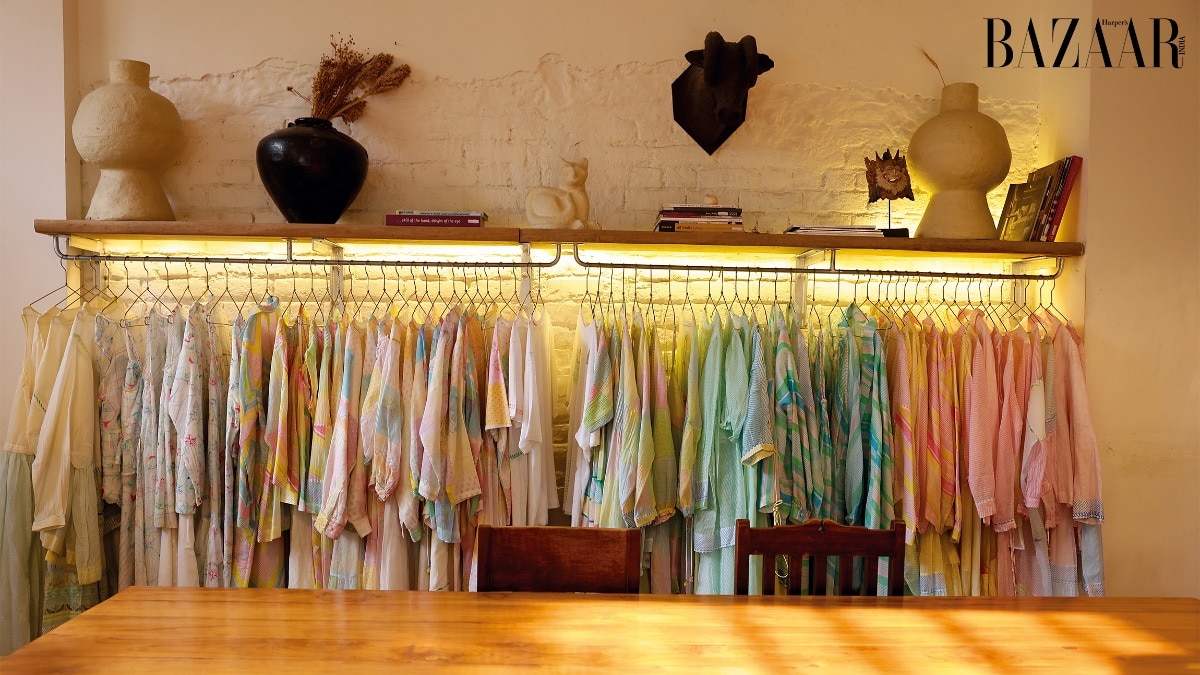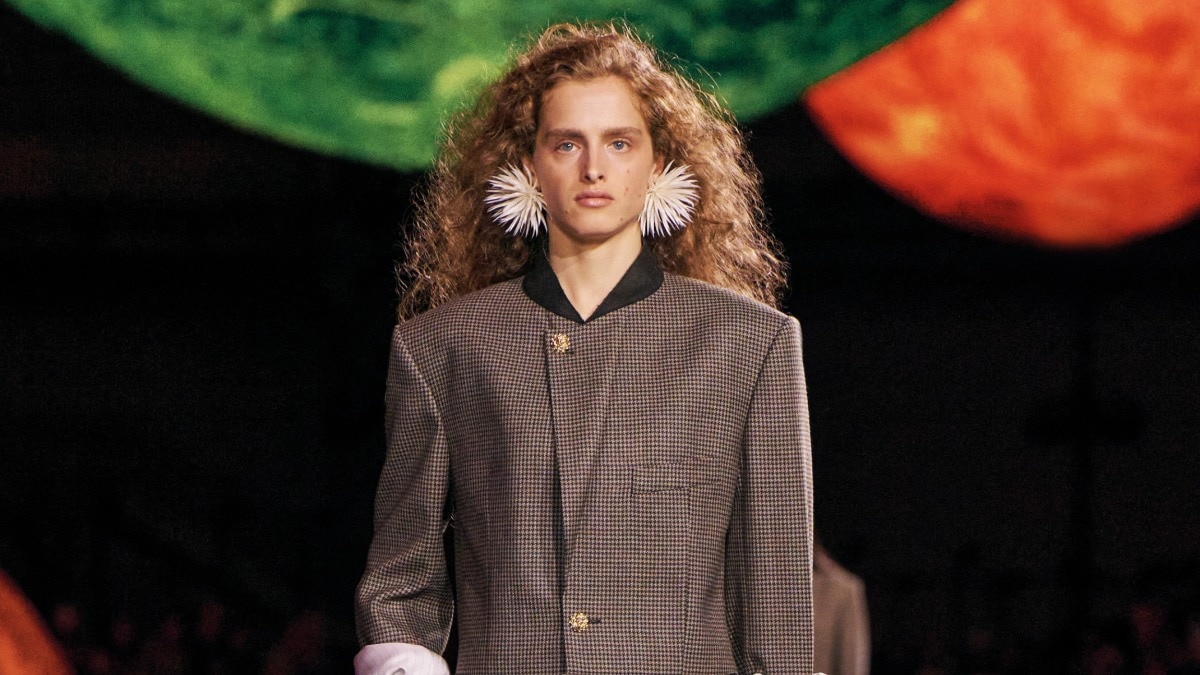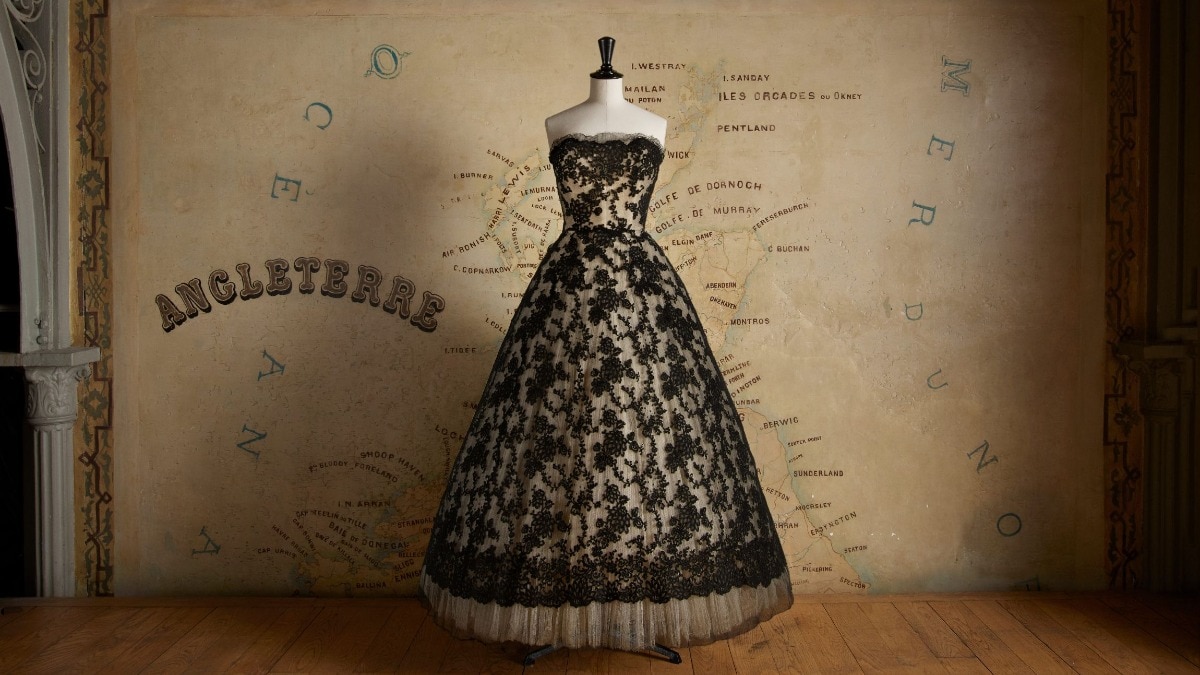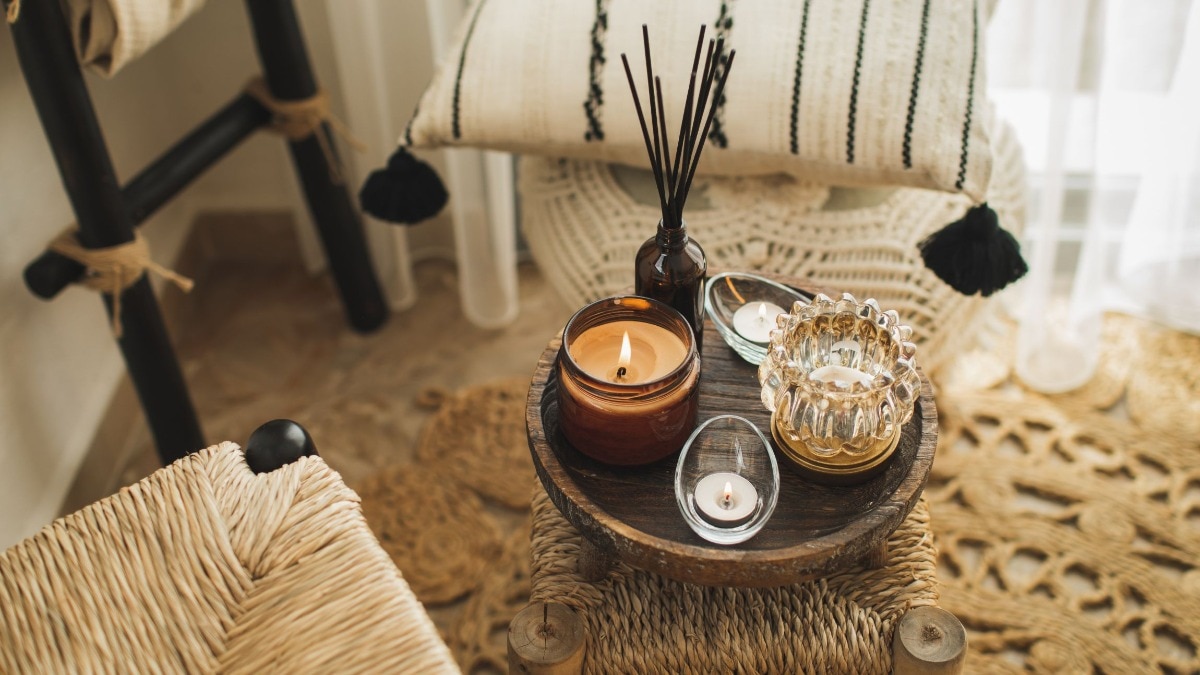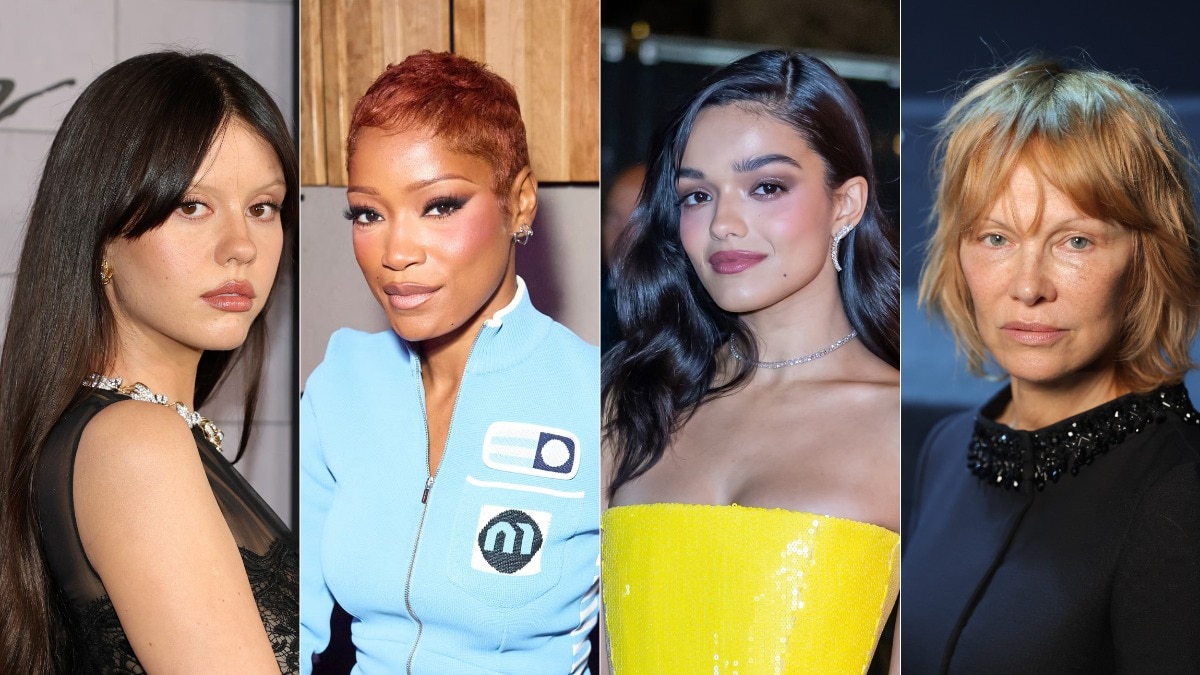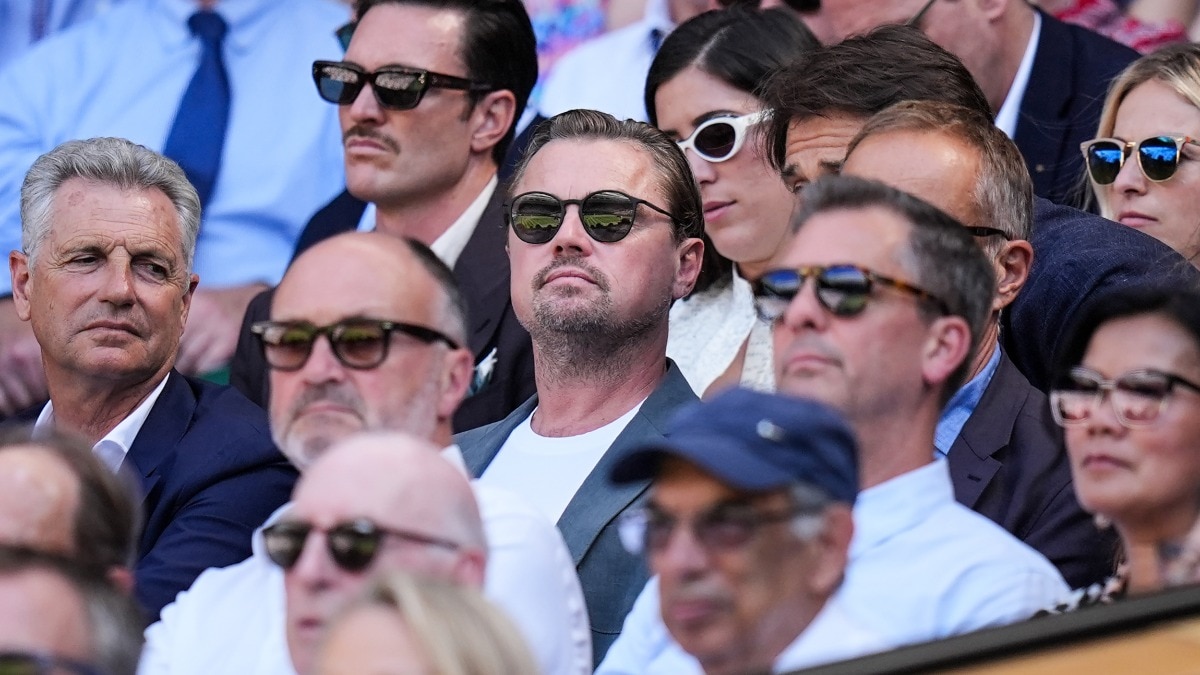
#Exclusive: Eddie Redmayne, Lashana Lynch, and Úrsula Corberó talk killer roles and high stakes in 'The Day of the Jackal'
Bazaar India catches up with the trio, who get candid about what drew them to the project, adapting the 1971 novel to the present-day, what audiences should expect, and more.

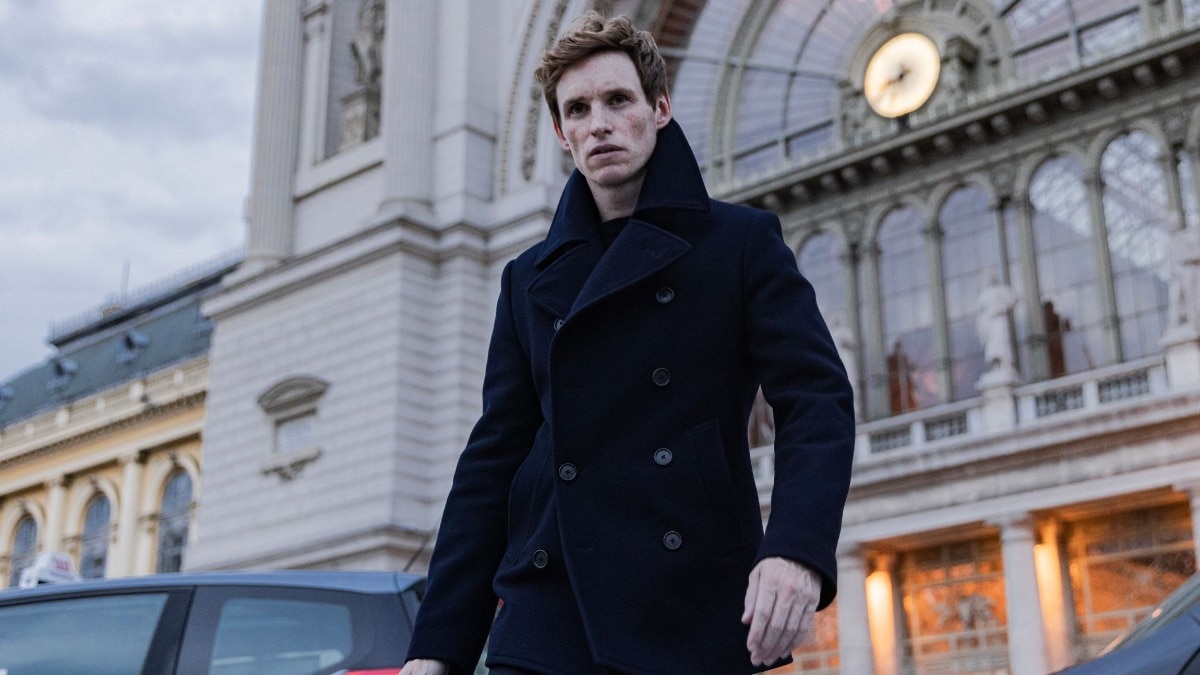
Book adaptations have always fascinated audiences; to see words come to life on screen is a delight. Back in 1971, English author Frederick Forsyth piqued the interest of readers with The Day of the Jackal, a political thriller about a professional assassin. In 1973, a film by the same name released. Cut to present day, audiences are set to see a modern-day version of the same starring Eddie Redmayne, Lashana Lynch, and Úrsula Corberó. The upcoming series will span 10 episodes, and stream on JioCinema starting November 15.
Redmayne plays the Jackal, an elusive assassin who meets his match in a tenacious British intelligence officer (Lynch), who tracks him down in a thrilling cat-and-mouse chase across Europe. Corberó, who played Tokyo in the hit show Money Heist, plays the Jackal's love interest, Nuria, who lives on a remote Spanish villa, completely unaware that her partner is a murderer by profession.
In an exclusive interview with Bazaar India, the trio speaks about the exciting plot, how refreshing was it to have women with authority and agency compared to the novel, the themes that the series explores, and more.
Bazaar India: Eddie and Las,hana, you are also executive producers on the show, but there’s not a single scene with the two of you together. Does that make the plot more interesting?
Lashana Lynch: I think the fact that we dived straight into the psychology of the two characters without wasting any time was exciting. We get to learn their process—how they work as individuals and how it seamlessly finds a place into this cat-and-mouse chase. I do think, in the end, it’s an interesting choice to have these characters not share screen space. Because you are quite literally plotting what you think things could look like or when these two people meet. It is something that was unexpected, but it’s something that keeps everyone on their toes and gives us—as producers, something to look forward to. We spent the whole year discussing what things are going to look like.
Eddie (Remanye) has given such a wonderful, detailed, and thorough performance. He’s incredible to work with.
Eddie Redmayne: Our friendship was formed by this (not sharing screen space). It was really interesting. When I started, I assumed that we’d be sharing a lot of screen time. It was like we’re watching two different films.
On one hand it’s an action thriller, but it’s also an intimate romance film in moments. What I loved was all these different qualities. Like I said, being in a different film from Lashana’s, it felt like when those moments were coming together, there would be a lot of anticipation.

HB: Eddie, your German and French sounds terrific. Did you learn those lines or was it spontaneous?
ER: That means a great deal because I don’t speak a word of German. I thought that the first episode was so cleverly written, but it lived or died on whether the Jackal could be realistic. I learnt the language phonetically and those specific lines as I didn’t have too much time. I kept saying, ‘If it sounds bad, can we dub that?’. They haven’t done that yet, but we’ll wait and see.
I speak a bit of French. Ursula (Corberó) and I were talking about it. Often when you’re acting, there’s a part of me, outside of myself, judging how something sounds. When you’re speaking a foreign language, you have no idea, so I was free in some ways.
HB: The story is from the '70s. What did you guys do in order to fit it into the modern-day setting?
LL: In the 70s, you didn’t see a black woman in this position. If I was a woman, my age, growing up in that era, I would have been one of those radical people pushing for change and giving people the opportunities that I have today. Today, we have agency; that’s refreshing. I’m happy and grateful that our creators saw that and we got to dive deeper into the psychology of women in service. Nothing is elaborated, but it feels that audiences from our background will feel represented and feel comfort to see and know that their stories are part of the espionage world.
Eddie (Redmanye) and Brian Kirk (the director) are two progressive men who think openly. It does make actors like me have it easy as we were represented in a way we should be. But the fact that the men took it upon themselves to make this happen is not always the experience. I thank them for giving us the chance and the space to articulate that.

Úrsula Corberó: It was important in my opinion. When we first met during the rehearsals, I remember talking about the characters and saying that it was important to know my point of view of the story in general. It’s the first international project that I feel a big part of.
HB: What was the biggest challenge of being a part of this fresh interpretation?
ER: For me, one of the biggest thrills was that it felt it blended into so many genres. There was action, the thrill of the chase, disguise, mimicking, etc. You had these two stories of mine and Bianca’s in relation to their partners that were deeply human—passionate, yet complicated. It was close to making five different types of movies.
The technical element with respect to the prosthetic changes was a challenge. It took a lot of time to put on. By the time I arrived on set, I felt that I had done my day’s work, but we were only getting started. There’s nowhere for the sweat to go. They had to prick your prosthetic with a pin and ooze out the sweat. I found this as the biggest struggles.
UC: The most challenging thing was the accent. My scenes in Spanish isn’t my own accent. Mixing that with English was challenging. It was an accent cocktail if you ask me.
HB: Your character is a master of a disguise, similar to what an actor does? What are the things you have in common?
ER: One of the best parts of playing a character like the Jackal, is that he is an actor. He’s an artist who prepares the prosthetics and mimics a language. It was an actor’s playground and I loved that element. What I found intriguing about the part is normally, when I’m playing a part, I reach out to the character. But there were many moments here, where I thought, ‘If this guy is an actor, and he’s a good one, how would I navigate the situation. It was about bringing the character to me, rather than the other way around.’ It’s the first character I’ve played in 25 years who’s wearing contemporary clothes. That was wild and fun.
HB: The screenplay draws parallel between the two characters (The Jackal and Bianca). Tell us about that.
ER: One of the things that I find intriguing about the book and the film was that there was a binary sense of good and evil. Jackal was the charismatic bad guy aspiring to kill the good. When I read the script, it felt that the Jackal and Bianca were two sides of the same coin. They were obsessive and talented, but there was a moral ambiguity to both of them. They were on this collision course towards each other was something I found different from the original, but intriguing.

LL: It was exciting to see a man and woman in those positions. I’ve seen two men and everyone is so excited. Having a woman being evil is exciting because it breaks parameters and re-educates the industry to be more open-minded about female characters. I had a team that celebrated that, and did so in the espionage genre, which is very new. I see that as an example to broaden the scope. I’m glad that this can be normalised and shows after this won’t celebrate it as this will be normal.
HB: Ursula is the other woman, even if there is no other woman. He’s married to his job, in a way. How interesting were these plots?
UC: It was different for me. What I really liked about the show was that it wasn’t just about espionage. You can find everything there. We realised the importance of the relationships that these characters have. We added layers to it and that’s why people are asking about it. Their job is very important. High stakes. I wasn’t expecting that people would pay attention. Turns out, it’s good, weird and fun to see a contract killer have a wife. It was more about looking at each other, there was no need to talk. It was more profound than saying something.
ER: All three were deeply protective of our characters. Ursula (Corberó) was, ‘we cannot make this woman appear stupid’. I was, ‘What are the lies he’s spun and how he could have kept this life. What job should it be?’ You jumped from day to day, from action to an emotionless marriage.
HB: The show is based 60+ years after the book and movie were released. What made you want to make it now?
LC: For me, it was humanising the villain. We’re so used to seeing the archetypal villain live the same lives, we recognise them. They are within their parameters. It feels comfortable. We took them outside the box and we do it in a way that challenges their morals. You would think all three characters are set in who they are, but because they’re pushed, they have to make decisions that make audiences think if they know who they are. You feel that you understand the story and then we flip the story. You question everything, we had the playground to keep things fresh and exciting—without stereotypes that audiences don’t want to watch.
All images: JioCinema
Also read: New OTT releases to stream this November
Also read: Why watching a horror or thriller movie is good for your relationship
Also read: 75 essential feminist movies you need to see
Also read: Birthday Special: November-born actors and their best movies to watch this month




